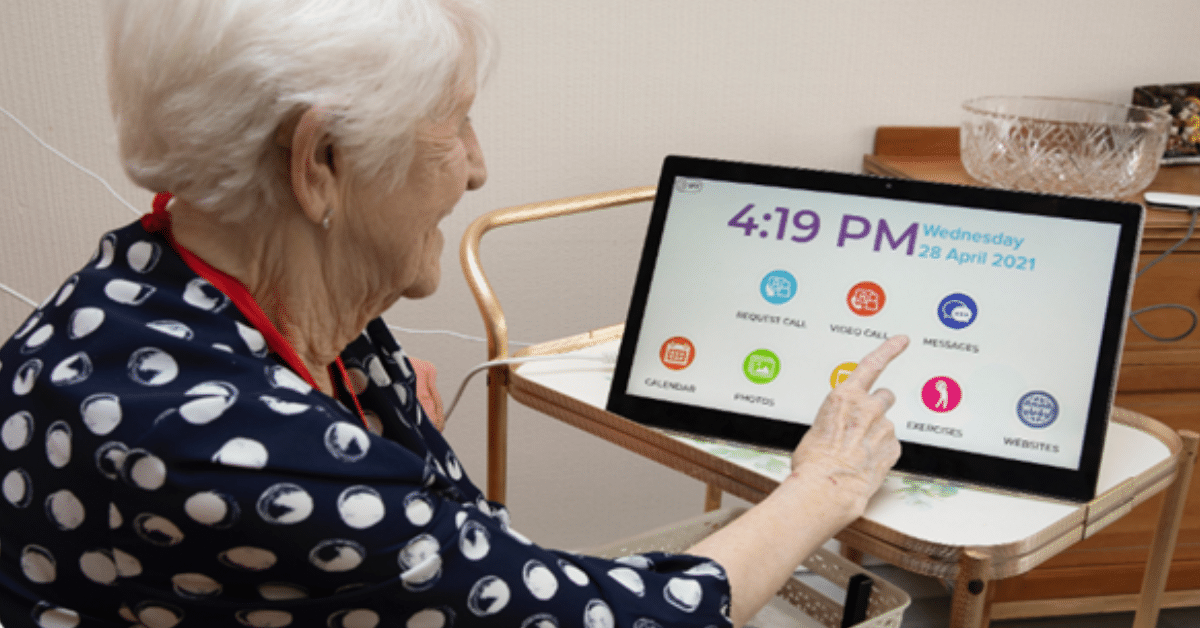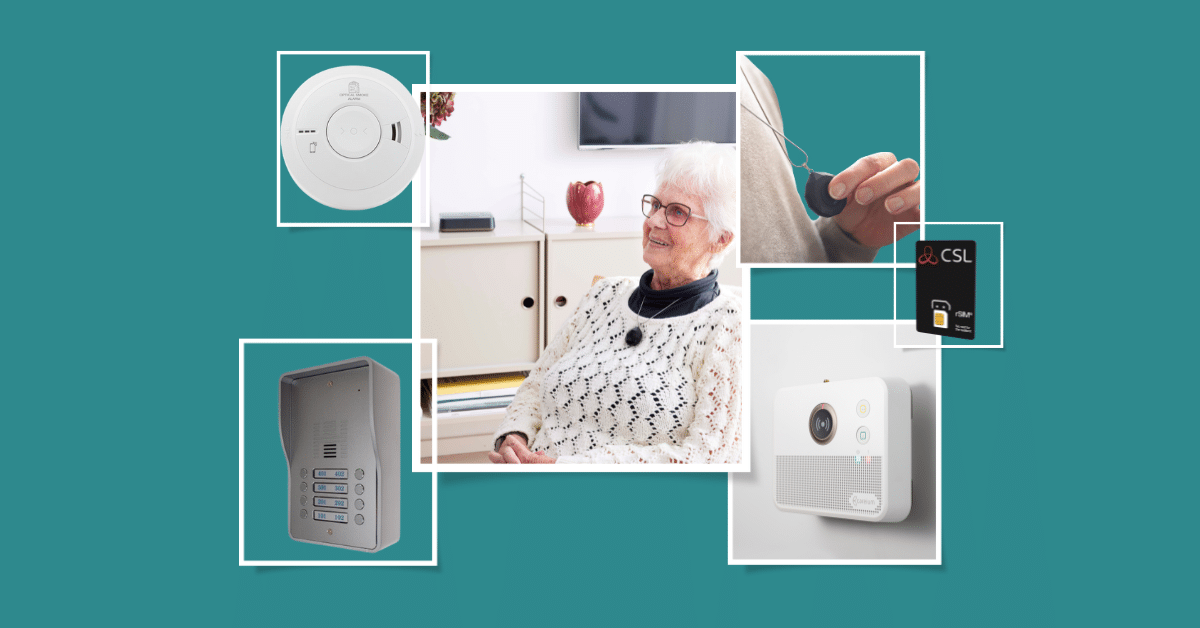Background
Monmouthshire Housing Association (MHA) faced a critical decision: replace their ageing hardwired analogue systems with a like-for-like solution at high cost or exit the market entirely. The reliance on a legacy supplier had led to a loss of internal knowledge, and traditional group living systems, designed to last 30 years, had not evolved to meet modern needs. Instead of following a conventional replacement path, MHA took a fresh approach, driven by resident engagement and the principles of the Technology for our Ageing Population: Panel for Innovation (TAPPI), which aims to improve the way technology is used in housing and care settings, to create a flexible, outcomes-driven, and future-proof digital solution.
Solution
Through a strategic partnership, Careium worked with MHA to co-design a resident-focused, digital-first system that prioritised independence, reassurance, and ease of use. The solution included:
- Digital dispersed alarms (Eliza/S+) – Moving away from a rigid hardwired system, MHA deployed a dispersed alarm solution that provided flexibility for changing resident needs while ensuring rapid response in emergencies.
- SIM-based Intratone Door Entry Panels – Removing the need for invasive cabling, the Intratone door entry system allowed tenants to manage access via their mobile phones and use live video streaming. Residents who needed handsets were provided with them due to overall project cost savings.
- Seamless connectivity and monitoring – The solution integrated with existing AICO smoke alarms and Careium’s Alarm Receiving Centre (ARC), ensuring proactive risk management and real-time response.
Implementation & Resident Engagement
MHA took an outcomes-driven approach by engaging residents before designing the system. Instead of fitting a pre-determined solution, MHA listened to tenants, shaping the technology around their needs:
- “I just want to press a button” – Residents wanted an intuitive system that provided instant support without unnecessary complexity. The new system delivered just that.
- Minimal disruption, maximum reassurance – The installation process was designed to be non-intrusive, with no need for chasing cables through walls or under floors.
- Tenant advocacy & intuitive design – The ease of use meant that not only did residents adopt the system quickly, but housing colleagues also became advocates for its benefits.
Implementation Details
We implemented the solution at four of MHA’s schemes: Plas Mawr/Clare Court in Usk, Radstock Court in Abergavenny, Cwrt Severn in Caldicot and Davis Court in Chepstow.
All sites were different, but the approach we took with reducing the integration between systems and using a dispersed solution for grouped living meant we could use the same solution across the schemes.
Impact & Outcomes
The transition to a digital system has had a transformative impact on MHA’s independent living schemes:
- Increased resident confidence & security – Residents reported greater peace of mind with the new system, knowing help was just a button press away. One resident shared how they could now remotely let in deliveries from their garden, enhancing independence while maintaining security.
- Reduced emergency call-outs & failed calls – With fewer false alarms and a more reliable connection, MHA saw a drop in unnecessary emergency responses, reducing operational strain and improving efficiency.
- Financial sustainability & cost savings – A 70% saving on price per connection resulted in substantial cost reductions on the resident’s service charge, making the service more affordable and sustainable for MHA and residents.
- Future-proofing for a changing resident base – As resident needs evolve, the system allows for easy integration of additional technology (e.g., falls detectors, OK Today, dementia support tools, proactive and preventative peripherals). MHA is also engaging with health and social care colleagues to broaden TEC’s role in the housing and care ecosystem.
Looking Ahead
MHA’s progressive approach to TEC has prevented another housing provider from exiting the market due to cost constraints.
The success of this project demonstrates the potential for digital solutions to enhance independent living, providing reassurance today and adaptability for the future.
As MHA continues to refine its approach, it aims to integrate even more personalised technology, aligning with broader transformation efforts in health, social care, and housing.
Contact us at [email protected] or 0300 333 6511 if you are interested in more information about our resident-centric and cutting-edge solutions that promote independent living, both efficiently and cost-effectively. Download our Monmouthshire Housing Association case study.

